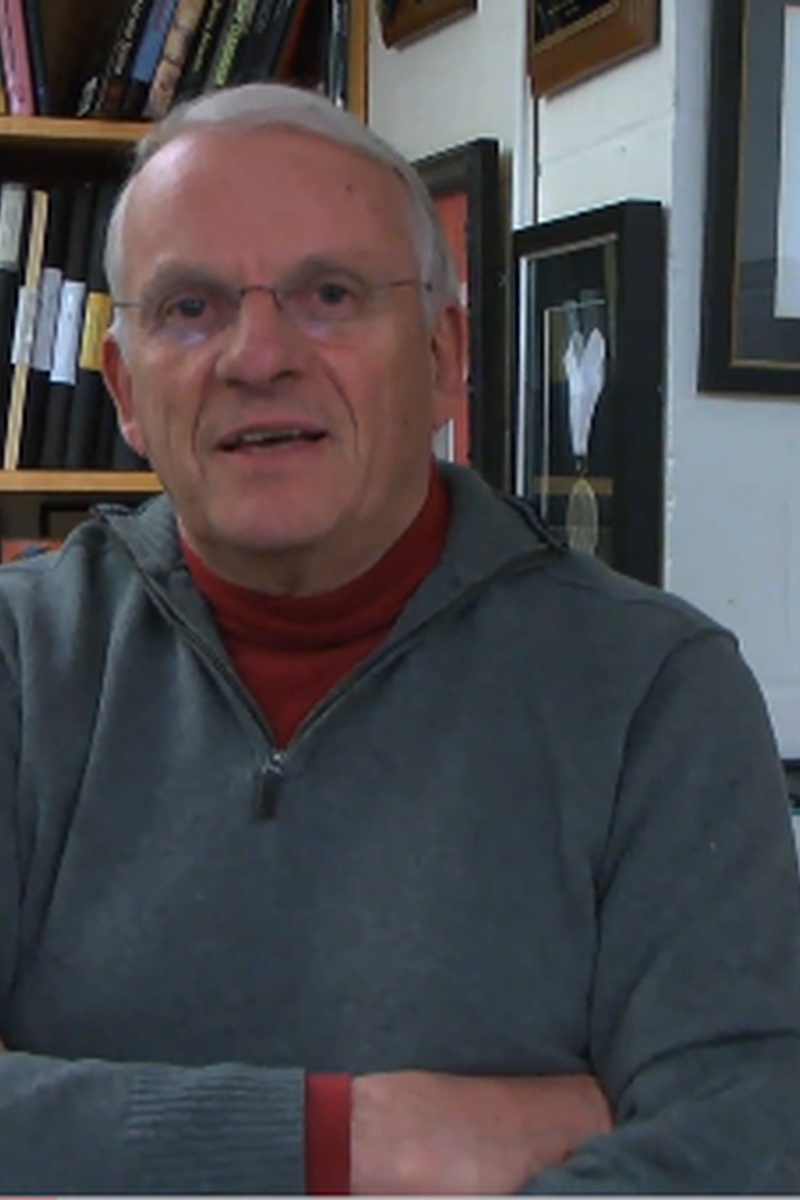When Psychology Department Chair Susan E. Carey ’64 graduated from Radcliffe College, William James Hall was still under construction.
Forty-seven years later, she works on the 11th floor of that very building.
Carey is a part of a unique group of professors for whom Harvard is not only their employer—it’s their alma mater. With the perspective of a former undergraduate experience, these professors have helped shape the school that sent them on their own career paths.
“Harvard is the only college I applied to,” remembers Carey, who, after a lengthy hiatus as a professor at various other colleges, returned to Harvard in 2001.
Professor John E. Dowling ’57 says he still has his letter of admissions—saved in a scrapbook of Harvard memorabilia—which documents the beginning of his Crimson-infused career.
A PRETTY LIBERAL PLACE
The undergraduates of a past generation remember a very different Harvard.
“No one in my school had ever heard of Radcliffe—they had heard of Harvard, but they hadn’t heard of Radcliffe,” says Carey, who graduated six years before “The Great Experiment,” when Harvard and Radcliffe undergraduates began to share housing.
Dowling recalls an early meeting his proctor held with his entryway.
“They told us that Harvard was a pretty liberal place, that if you had too much to drink, you wouldn’t get into too much trouble. But, there was one thing that if you did, you were gone, you’d be history. And we’re thinking, what heinous crime could this be?” Dowling says. “And he said, having a woman in your room after 8 o’clock at night.”
Carey remembers the Radcliffe perspective of that social scene, which she says was dominated by dating.
“I’ll tell you, I never didn’t have a date,” she says. “It wasn’t based on networks of friends hanging out. There were parties, but you went to parties with a date. It was fun!”
Having graduated from that world, Dowling has turned much of his attention back to student life on campus. Since he joined the faculty in 1961, he has been an active force in the evolution of Harvard undergraduate life over the years. He is the namesake of two separate commissions that evaluated the role of student governance on campus, in 1981 and most recently in 2009.
And even after serving as master of Leverett House for 17 years, Dowling fondly recalls those quirky incidents that only an undergraduate could experience.
“My freshman year, I was in Wigglesworth D-12,” Dowling says. “One day I forgot my key and since my room was on the first floor, I tried to climb through the window. Of course, a HUPD police officer came over right at that moment and questioned me for an hour until I could persuade him that I lived there.”
Read more in News
NRA Representatives Visit Harvard CampusRecommended Articles
-
 'Pillowman' Anything But Fluffy
'Pillowman' Anything But Fluffy -
 Hauser Will Not Be Advising Harvard Students This Year
Hauser Will Not Be Advising Harvard Students This Year -
Crimson, Veterans Team Up on TrailsFor the past three weeks, the Harvard Nordic ski team has been trying to spread the joys of its chosen sport. The Crimson has been working with the New England Nordic Ski Association (NENSA) to teach Nordic skiing to war veterans from local VA hospitals.
-
Psychology Department Bars Hauser from TeachingPsychology Department Chair Susan E. Carey ’64 confirmed that psychology professor Marc D. Hauser will not be teaching next academic year.
-
 Academics Level Criticism at Harvard Over Handling of Hauser Inquiry
Academics Level Criticism at Harvard Over Handling of Hauser Inquiry -
Carey Studies SchizophreniaCaitlin E. Carey ’12 has spent the semester immersed in the Social Neuroscience and Psycho-Pathology Lab in William James Hall, studying somatic associations and schizophrenia.















